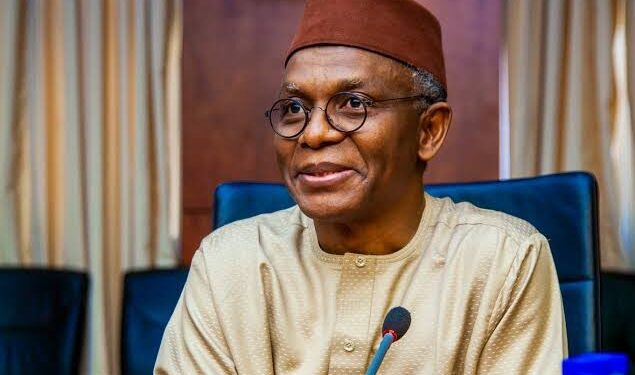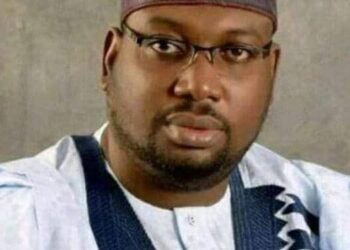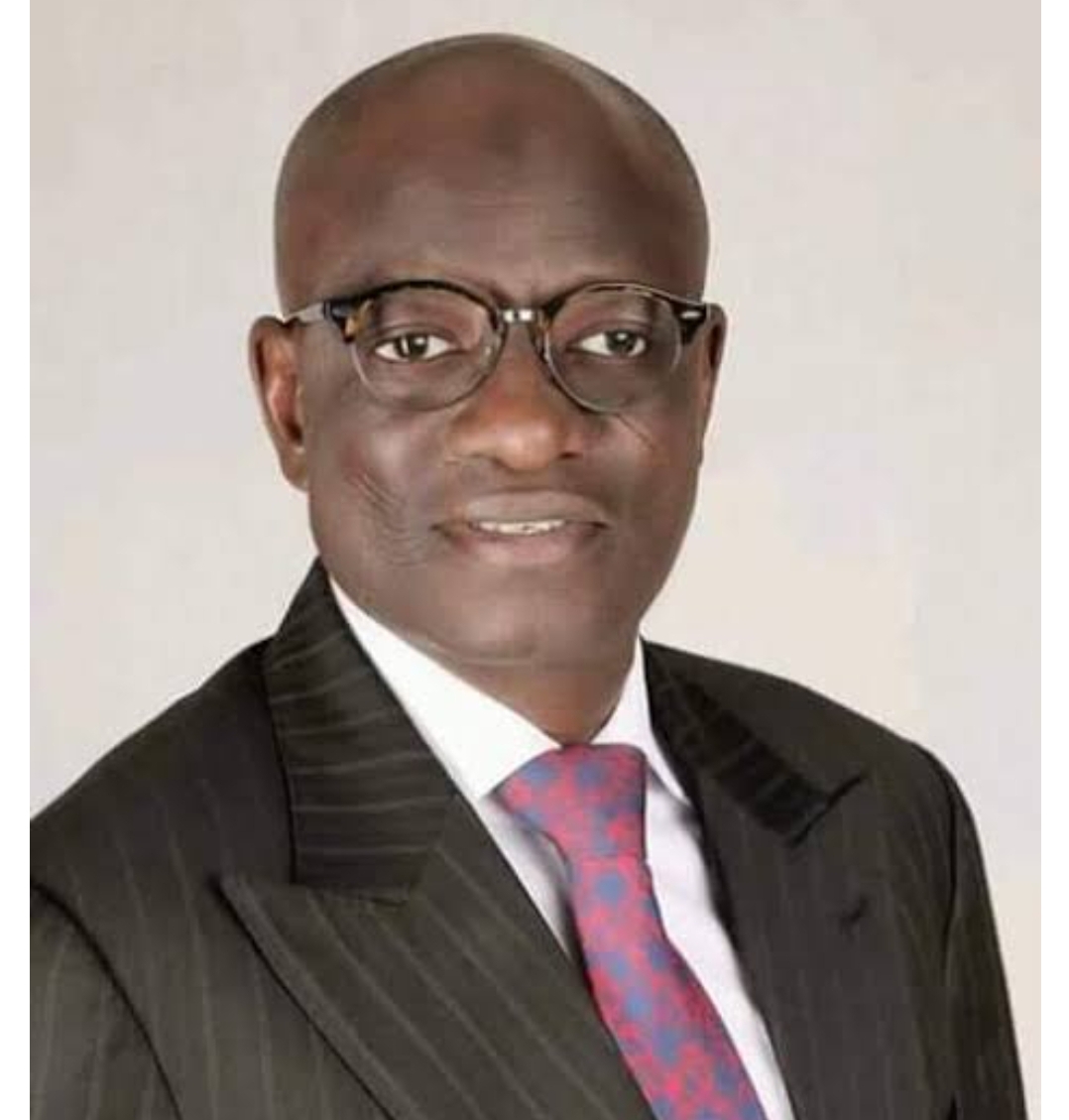By Sulaiman Abdul
Before Nasir Ahmed El-Rufai became governor, Kaduna State enjoyed a sense of peace and unity among its various communities. The people had learned to live together, respecting each other’s rights and boundaries.
Kaduna State has a long history of peaceful coexistence among its various communities, from the highlands of Makarfi to the plains of Kagoro. The farmers and herdsmen lived side by side, sharing the land and its treasures. While disputes over land have occurred in the past, the communities have managed to live together and prosper, showcasing their ability to accommodate differences and maintain harmony.
However, during El-Rufai’s tenure as governor, the state faced increased conflicts and tensions among different groups. During Elrufa’s tenure, longstanding misunderstandings that were ordinarily resolved at the community level were manipulated and escalated into violent conflicts fueled by tribal and religious jealousies. These conflicts have resulted in heavy loss of lives and valuable resources, creating a climate of fear and unrest in the state.
One of the main issues that has been exacerbated under Elrufai’s leadership is the age-old clash between herdsmen and farmers. This conflict, which has been a recurring problem for centuries, has escalated into deadly confrontations resulting in loss of lives and destruction of property.
The current state of killings and unrest in the region cannot be viewed as isolated incidents, but rather as part of a larger agenda of misgovernance that has divided communities along ethnic and religious lines. Elrufai’s administration has exploited internal weaknesses and cleavages in society, perpetuating a cycle of violence and discord.
El-Rufai’s eight-year tenure was marked by division, weakness, and confusion within the state. His policies exploited ethnic and religious differences, leading to a grand misgovernance that fueled the current spate of killings and unrest. It is clear that Kaduna State needs a more inclusive and proactive approach to address the challenges it faces and restore the peace and unity that once defined the state.
Allegations of human rights abuses, unguarded public utterances, and a flood of petitions have characterized the political career of Nasir El-Rufai, particularly during his eight-year tenure as the governor of Kaduna State. These issues have raised significant concerns both within Nigeria and internationally, highlighting the controversial nature of his leadership style and decision-making.
One of the key issues surrounding El-Rufai’s tenure is the broad and specific allegations of human rights abuses. Perhaps the most prominent case is the killing of over 300 followers of the Shiite leader, Ibraheem El-Zakzaky, in Zaria, Kaduna State, in 2015. Instead of holding the military accountable for the massacre, the El-Rufai-led government chose to prosecute El-Zakzaky and his wife, leading to a lengthy and controversial legal process that ultimately ended in dismissal by the Kaduna State High Court in July 2021. This case has brought El-Rufai under intense scrutiny from both domestic and international human rights bodies, with investigations ongoing at the International Criminal Court and the United Nations.
Furthermore, El-Rufai’s tenure was marked by arbitrary arrests of political enemies, seizure of properties, and wanton demolition of perceived opponents’ properties. Reports of extrajudicial killings and the use of force and intimidation to suppress protests have further tarnished his human rights record. Some court cases against him have alleged embezzlement of public funds and abuse of trust, involving cronies, allies, and family members for corrupt purposes during his time as head of the Bureau of Public Enterprises, Minister of the Federal Capital Territory, and governor of Kaduna State.
In addition to human rights abuses, El-Rufai’s unguarded public utterances have also generated controversy and backlash. He has made divisive statements that inflamed mistrust among citizens, particularly between Muslims and Christians in Kaduna State. His comment about Muslims ruling Kaduna for a long period while doing justice to Christians was widely criticized for its potential to stoke religious and ethnic tensions, leading to bloody clashes. The derogatory remarks he made towards political adversaries and respected groups like the Northern Elders Forum have further solidified his reputation for making inflammatory comments.
Moreover, a flood of petitions and legal challenges have followed El-Rufai throughout his political career. His nomination as a ministerial candidate attracted widespread rejections and petitions, leading to protests during the screening exercise at the National Assembly. Several pending cases in Nigerian and international courts, including the ECOWAS and the ICC, highlight the extent of the legal challenges facing El-Rufai. Allegations of genocide, crimes against humanity, and corruption have been leveled against him, reflecting the depths of public distrust and dissatisfaction with his leadership.
The tenure of Governor Elrufai in Kaduna State will be remembered as a dark period in the history of the state. The administration, characterized by a lack of transparency, accountability, and empathy, left a trail of suffering and despair in its wake. As Elrufai’s eight-year reign came to an end, the people of Kaduna State were left grappling with the harsh realities of hunger, inflation, job losses, and a deteriorating healthcare system.
The 2023 elections marked a turning point for the state, as voters overwhelmingly chose a new vision for the future. Senator Uba Sani emerged as the people’s choice to lead Kaduna State out of its current predicament and towards a brighter tomorrow. The jubilations that followed the election were not just about a change in leadership, but about the hope and possibility of a better future for all residents of the state.
Governor Uba Sani faces a daunting task ahead, as he must navigate the challenges left behind by his predecessor and chart a new course for the state. It is imperative that he surround himself with a team of competent and compassionate individuals who share his vision for a prosperous and united Kaduna State. The mention of leaders like Honorable Sani Mohammed Shaaban, with his impeccable credentials and commitment to the welfare of the people, highlights the importance of selecting the right individuals to support the governor in his quest for positive change.
Shaaban is a passionate believer in the organic links between generations, particularly when it comes to mentorship in northern Nigeria. At a very young age, he had the privilege of being exposed to political masters such as Ibrahim Tahir, Umaru Dikko, Joseph Tarka, and Aminu Kano. These individuals are living history and embodiments of all the exemplary qualities that young Northerners should strive to achieve.
Mentorship is a crucial aspect of personal and professional growth, and Shaaban understands the importance of learning from those who have come before him. The political masters he was fortunate enough to be mentored by not only imparted knowledge and wisdom but also instilled in him a sense of responsibility and dedication to serving his community and country.
Ibrahim Tahir, Umaru Dikko, Joseph Tarka, and Aminu Kano are all respected figures in northern Nigeria, known for their leadership, integrity, and commitment to social change. Shaaban sees them as role models and strives to follow in their footsteps by upholding the values they stood for.
In a society where traditional values and customs play a significant role, mentorship from esteemed individuals like Ibrahim Tahir, Umaru Dikko, Joseph Tarka, and Aminu Kano is invaluable. These mentors not only provide guidance and support but also serve as a living example of what can be achieved through hard work, dedication, and a commitment to serving others.
Shaaban’s belief in the organic links between generations is a testament to the power of mentorship and the importance of learning from those who have come before us. Thanks to the guidance and guardianship he received from northern political masters, Shaaban is well-equipped to carry on their legacy and make a positive impact in his community and beyond.
Umaru Dikko, known for his iron will and determination, inspired many with his unwavering commitment to his principles. Shaaban has been Dikko’s close tutelage since his school days in the United Kingdom and shares this steadfastness and commitment to his goals, demonstrating a resilience that mirrors that of Dikko.
Dr. Ibrahim Tahir, with his political sagacity, paved the way for future leaders like Shaaban whom he guided and mentored rigorously in the days of the second republic National Party of Nigeria (NPN). His intellect and foresight in navigating the complexities of Nigerian politics set a standard for Shaaban. As such, Shaaban exemplifies a similar level of acumen and strategic thinking in his own political endeavors.
Aminu Kano, a political maverick dedicated to social justice, has influenced Shaaban in his quest for a fair and equitable society. Shaaban’s dedication to the people and his passion for uplifting the marginalized echo the ideals that Kano championed during his lifetime.
Tarka, renowned for his courage and boldness, serves as a role model for Shaaban with whom he served as the national youth leader of the NPN. Shaaban’s fearless approach to tackling tough issues reflects the same courage that Tarka exhibited during his political career.
Shehu Shagari’s impetus and vision for a prosperous Nigeria continue to inspire leaders like Shaaban. Shaaban shares Shagari’s commitment to national unity and economic development, striving to build a better future for all Nigerians.
It is difficult in this age and time for any political in Kaduna State to compare with Shaaban who carries the legacy of these esteemed leaders with grace and determination.
His leadership, sacrifice, and dedication to the common people make him an invaluable asset to any government seeking to improve the lives of its citizens and to the North generally. In a diverse state like Kaduna, leaders like Shaaban who have enjoyed such rare opportunity for training by masters of the northern power play are crucial in bridging divides and fostering unity among all communities.
Shaaban’s inspiring presence and untiring efforts to serve the interests of the people of Kaduna State should be appreciated by all. Governor Uba Sani must heed the calls of the people for competent and compassionate individuals like Shaaban to support him in his mission to transform Kaduna State.
With leaders like Sani Shaaban by his side, Governor Uba Sani can guide the state towards prosperity and unity. The people of Kaduna deserve a government that works for their benefit and well-being, and with Shaaban’s leadership, a brighter tomorrow is possible for all residents of the state. It is time for a new era of governance that prioritizes the well-being and prosperity of all.
Abdul writes from Kaduna










